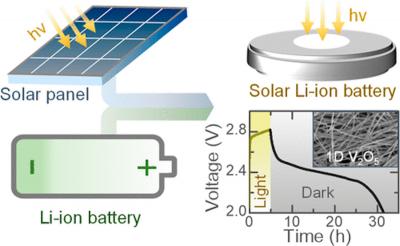by MBF Admin | May 4, 2021 | 2D materials, Aerospace, AGM, Angstron Materials, Audio, Development, Graphene applications, Graphene Oxide, Investment, Medicine, Products, Research
Researchers at Georgia State University and Emory University have developed an intranasal influenza vaccine using recombinant hemagglutinin (HA), a protein found on the surface of influenza viruses, as the antigen component of the vaccine. They also created a...

by MBF Admin | May 2, 2021 | 2D materials, Aerospace, AGM, Angstron Materials, Audio, Development, Graphene applications, Graphene composites, Graphene for Automotive, Investment, Products, Research
A British engineering company called Viritech is working on an ambitious hydrogen-powered hypercar. Dubbed the Apricale, it is being designed primarily as a technical showcase for the company’s hydrogen fuel-cell technology and aims to demonstrate the advantages of...
by MBF Admin | Apr 28, 2021 | 2D materials, Aerospace, AGM, Angstron Materials, Audio, Carbon Nanotubes, Development, Electronics, Graphene applications, Graphene Ink, Investment, Products, Research, Technical / Research
Researchers at Duke University have created transistors with three carbon-based inks. The all-carbon thin-film transistors were made using crystalline nanocellulose as a dielectric, carbon nanotubes as a semiconductor, graphene as a conductor and paper as a substrate....
by MBF Admin | Apr 26, 2021 | 2D materials, Aerospace, AGM, Angstron Materials, Audio, Development, Graphene applications, Graphene batteries, Graphene investing and financials, Investment, Products, Research
Anaphite, a UK-based company that was founded to explore ways to incorporate graphene into Li-ion batteries to improve battery life and charging times, has raised about £1.2 million (over USD$1,665,000) from investors in a new funding round. The funding round was led...
by MBF Admin | Apr 26, 2021 | 2D materials, Aerospace, AGM, Angstron Materials, Audio, Development, Graphene applications, Graphene batteries, Investment, Products, Research
Australia-based Graphene Manufacturing Group (GMG), which became a public company earlier this month, has announced the execution of a research agreement with the University of Queensland’s Australian Institute for Bioengineering and Nanotechnology (“AIBN”) for the...

by MBF Admin | Apr 26, 2021 | 2D materials, Aerospace, AGM, Angstron Materials, Audio, Development, Graphene applications, Graphene batteries, Graphene Oxide, Graphene Solar, Investment, Products, Research, Technical / Research
University of Cambridge researchers have designed a lithium-ion battery that can be directly charged in sunlight. This was done in an effort to improve the general process of connecting solar panels to batteries to store energy when the sun is shining. “The idea is to...


